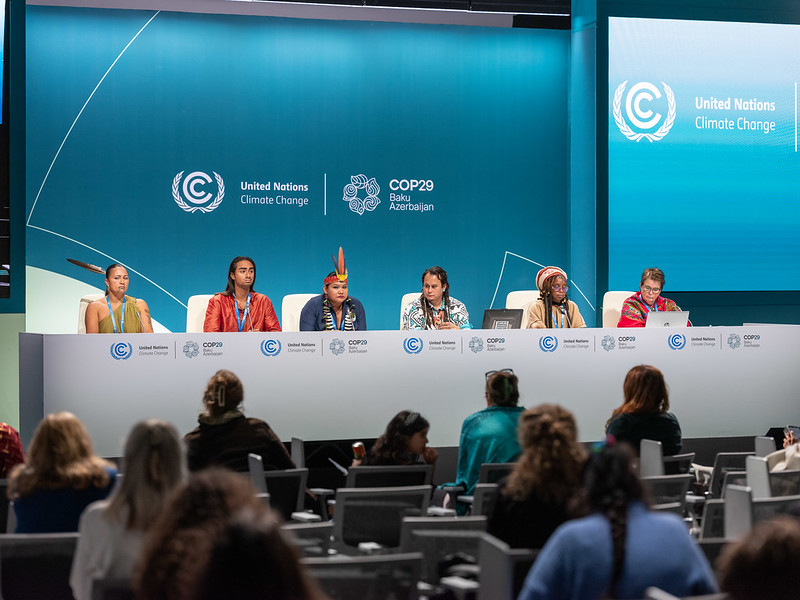The 2024 United Nations Climate Change Conference, or COP29, held in Baku, Azerbaijan, marked another critical chapter in the global effort to address climate change. The conference brought together nearly 200 countries, policymakers, scientists, and climate advocates to negotiate pathways for a sustainable future. This year’s discussions revolved around increasing climate finance, implementing carbon markets, and addressing the widening gap between developed and developing nations in tackling climate challenges.
Major Wins at COP29
1. Enhanced Climate Finance for Developing Nations
One of the most significant outcomes was the commitment by developed countries to mobilize at least $300 billion annually for developing nations by 2035. This is a considerable increase from the $100 billion annual target established in 2009, which was finally achieved in 2022. The funds aim to bolster climate adaptation and mitigation efforts in countries most vulnerable to climate change impacts.
While this is a step forward, many stakeholders argue that the amount is still insufficient, as climate-induced damages are projected to cost between $1.7 trillion and $3.1 trillion annually by 2050. Nevertheless, the commitment demonstrates a renewed focus on equitable climate action, as many developing nations have historically contributed the least to global emissions yet bear the brunt of climate impacts.
2. Operationalizing Carbon Markets
A significant breakthrough was achieved under Article 6.4 of the Paris Agreement, which governs international carbon credit trading. A UN-regulated framework was ratified to oversee carbon market operations, ensuring transparency, accountability, and fairness.
This framework is expected to unlock billions in climate finance, allowing countries to trade emissions reductions while adhering to strict standards. For developing nations, this presents an opportunity to attract investments in renewable energy, reforestation, and other climate-positive projects.
3. Progress on Loss and Damage Funding
Building on the historic establishment of the Loss and Damage Fund at COP28, COP29 outlined operational details for its implementation. The fund is designed to assist nations already experiencing severe climate-related losses, such as rising sea levels, extreme weather events, and biodiversity loss. Contributions from high-emitting countries were increased, with a few private-sector entities joining as donors.
Key Challenges and Shortcomings
1. Lack of Agreement on Fossil Fuel Phase-Out
Despite growing calls for a global phase-out of fossil fuels, COP29 failed to reach a consensus on this critical issue. The host country, Azerbaijan, which relies heavily on oil and gas revenues, resisted efforts to include language about phasing out fossil fuels in the final agreement.
This omission was widely criticized, especially as global greenhouse gas emissions reached record highs in 2024. Climate advocates argued that without a clear roadmap to transition away from fossil fuels, meeting the 1.5°C warming target set by the Paris Agreement would be nearly impossible.
2. Insufficient Adaptation Measures
While mitigation efforts and climate finance commitments took center stage, adaptation strategies—critical for vulnerable communities—received less attention. Small Island Developing States (SIDS) and least-developed countries (LDCs) emphasized the urgent need for investment in infrastructure, early warning systems, and disaster resilience, but concrete actions remain limited.
3. Growing Geopolitical Tensions
The conference exposed underlying geopolitical divisions, particularly between the United States, China, and the European Union. The U.S. faced criticism for its inconsistent climate policies, while China, emerging as a global climate leader, advocated for greater financial and technological support for developing nations. These dynamics highlight the challenges of fostering multilateral cooperation in an increasingly fragmented world.
Beyond the Present
As the global community looks toward COP30 in Belém, Brazil, in 2025, several priorities must be addressed:
1. Ambitious Emission Reduction Targets
Countries must enhance their Nationally Determined Contributions (NDCs) to align with the Paris Agreement's goals. This requires setting binding targets for reducing emissions across all sectors, particularly in energy, transportation, and agriculture.
2. Robust Mechanisms for Loss and Damage
Operationalizing the Loss and Damage Fund effectively will be crucial. This includes establishing clear guidelines for accessing funds, ensuring that they reach the most affected communities, and integrating loss and damage into broader climate finance frameworks.
3. Advancing the Just Transition
The concept of a "just transition" must move from rhetoric to action. This involves creating job opportunities in green industries, reskilling workers, and ensuring that no one is left behind in the shift to a low-carbon economy.
4. Strengthening Global Cooperation
The success of future climate negotiations will depend on bridging geopolitical divides. Collaborative efforts, particularly between major emitters like the U.S., China, and the EU, will be critical in driving global progress.
Final Insights
COP29 highlighted both the progress and persistent challenges in global climate negotiations. While strides were made in climate finance and carbon market development, the lack of consensus on phasing out fossil fuels and addressing adaptation needs underscores the complexities of international climate diplomacy.
The road to COP30 presents an opportunity to build on these outcomes and push for more ambitious, equitable, and actionable solutions. As the climate crisis intensifies, the urgency for collective action has never been greater.
References
Carbon Brief - COP29: Key Outcomes Agreed at the UN Climate Talks in Baku
https://www.carbonbrief.org/cop29-key-outcomes-agreed-at-the-un-climate-talks-in-baku/
UNFCCC - Official COP29 Overview and Outcomes
https://unfccc.int/cop29
The Times - COP29: What Was Achieved and What Remains to Be Done
https://www.thetimes.co.uk/article/cop29-what-was-achieved-and-what-remains-to-be-done-7lghvmrd5
Vox - As the US Yields on Climate Leadership, China Rises to Fill the Void
https://www.vox.com/climate/387811/cop29-climate-change-baku-us-china-trump-biden
Financial Times - Climate Multilateralism Clings On, Just
https://www.ft.com/content/0559f24a-bfc1-4758-9adc-56f78b3639c7
World Bank - Climate Finance and the Role of Carbon Markets
https://www.worldbank.org/en/topic/climatefinance
IPCC Reports - Sixth Assessment Report
https://www.ipcc.ch/report/sixth-assessment-report-cycle/

